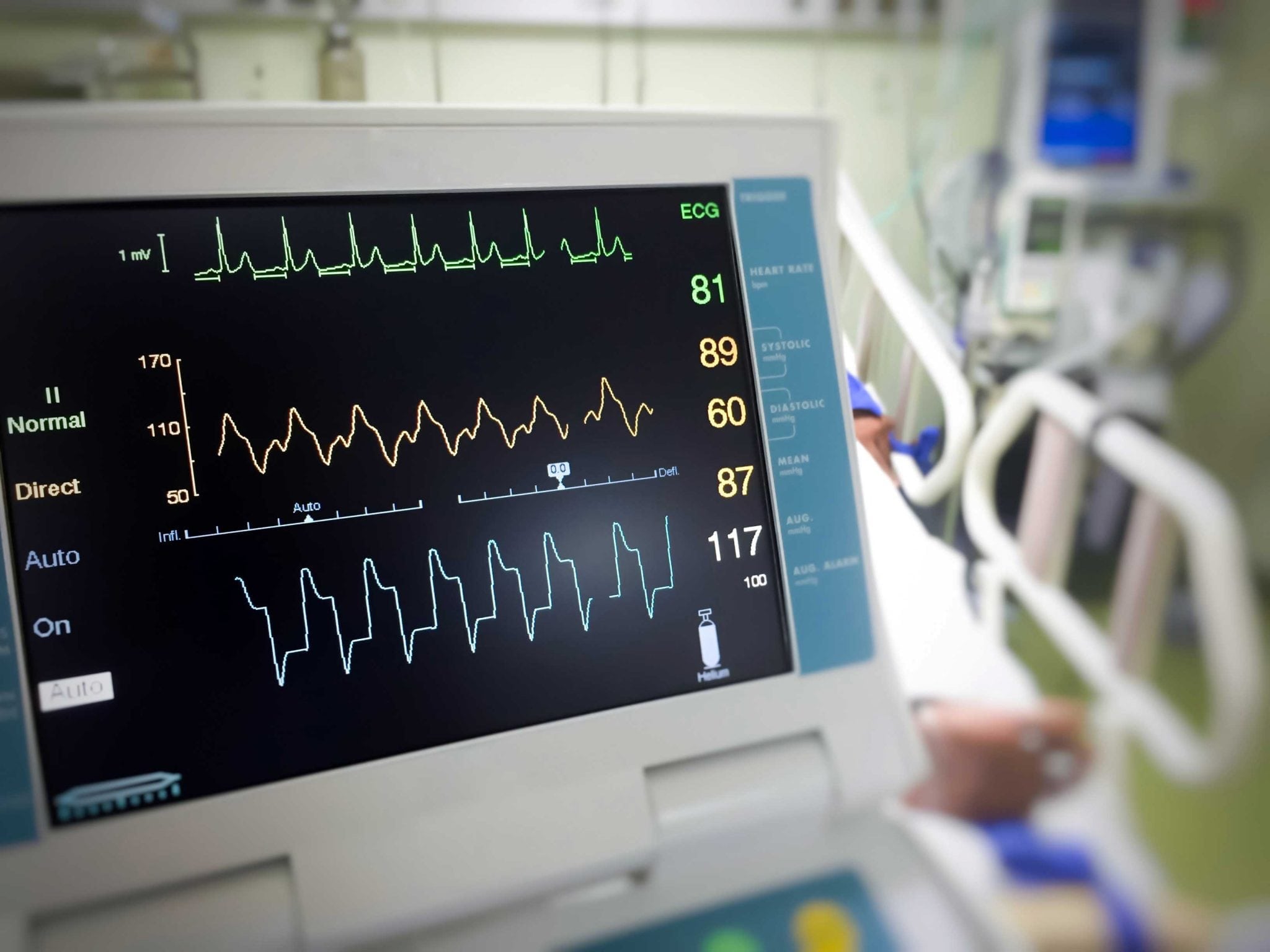<< Back
What Causes An Irregular Heartbeat?

August 12, 2019
The average human heart beats about 100,000 times a day, pumping almost 2,000 gallons of blood through the body. What makes it tick so precisely? An electrical system that creates impulses to control the heart rate (beats per minute) and heart rhythm (synchronizing the pumping action).
When that system is disrupted, creating an irregular heartbeat, it’s not necessarily a sign of a serious heart problem. But let’s say you feel the palpitation of a skipped beat or an extra beat. During this irregularity, called an arrhythmia, the heart might not supply enough blood to the body. That’s when it can become more serious. Reduced blood flow can damage the heart, the brain and other vital organs.
Atrial fibrillation, a type of arrhythmia, causes the upper chambers of heart to fibrillate, or quiver.
“Atrial fibrillation is one of the most common heart abnormalities that we see,” says Dr. Steven Zweibel, system director of electrophysiology at Hartford HealthCare’s Heat & Vascular Institute. “It’s important because it leads to a fivefold increase of stroke.”
What Causes Abnormal Heart Rhythms?
When the electrical signals that control your heartbeat are delayed or blocked, perhaps from malfunctioning nerve cells that produce the electrical signals, you’re in the midst of an arrhythmia. This abnormality also can happen if your normal heartbeat is disrupted by electrical signals produced in other parts of the heart.
A healthy heart can experience an arrhythmia, too. It also could happen because of:
- Heart disease.
- High blood pressure.
- Smoking.
- Heavy alcohol use.
- Cocaine, amphetamines or other drug use.
- An electrolyte imbalance in your blood.
- Changes in your heart muscle.
- Diabetes, with its added risk of high blood pressure and coronary heart disease.
- A heart attack that changes the heart’s electrical system.
- Heart surgery healing process.
- Congenital heart defects.
- Sleep apnea, which strains the heart when it doesn’t get sufficient oxygen.
- Weight-loss diets, predominantly liquid or high protein, can affect concentrations of electrolytes in your blood that can then affect the heart’s electrical system.
Tests
Here are some tests that help your doctor evaluate an irregular heartbeat:
EKG: An electrocardiogram records the spikes and dips of your heart’s electrical activity, typically with a device connected to a laptop that stores the results.
Holter monitor: A device worn by the patient that records the heart’s electrical signals for a much longer period, usually 24 or 48 hours.
Chest X-ray: A simple X-ray can tell doctors if you have an enlarged heart.
Echocardiogram: High-frequency sound waves create a picture of your heart using two-dimensional, three-dimensional and Doppler ultrasound technology.
Blood test: Abnormal levels of potassium, thyroid hormone or other substances in the blood can indicate a heightened risk of an arrhythmia.
Stress test: To evaluate how your heart works when beating fast, your doctor might recommend a stress test that includes monitoring during exercise. If you’re unable to exercise, certain medicines can duplicate the effects on your heart.
Coronary angiography: A technology that uses dye and special X-rays to reveal the interior of your coronary arteries.
Electrophysiology study: In an EPS, a wire inserted through a vein into your groin or arm to the heart records the heart’s electrical signals. This test is useful for doctors who wish to stimulate your heart to cause an arrhythmia, giving them insight into which medicines might help.
Your doctor can prescribe medications like beta blockers or calcium blockers to reduce a fast heart rate. This type of medication, and digoxin, are useful in treating atrial fibrillation.
Patients with atrial fibrillation and other arrhythmias also can be treated with blood-thinning medications that reduce the risk of blood clots. Warfarin (Coumadin), dabigatran and heparin are among the possible recommendations.
To find a Heart & Vascular Institute specialist, call 833.444.0014. For more information on abnormal heart rhythms, download a guide here.